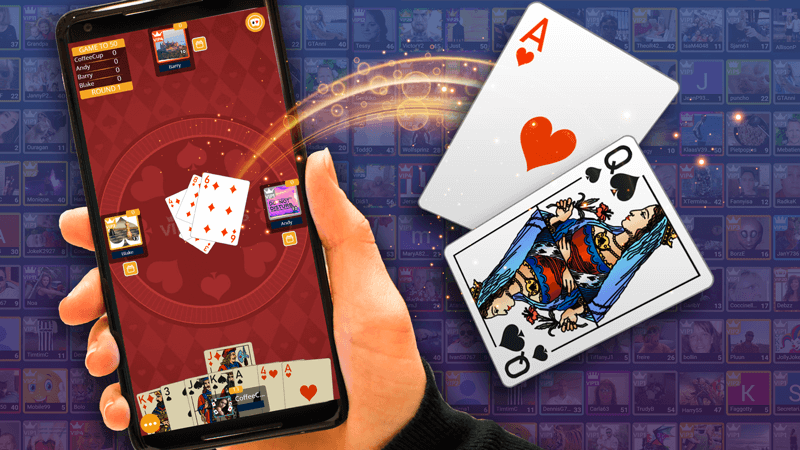
The Evolution and Impact of Online Games: A Modern Phenomenon
Online gaming has transformed from a niche pastime into a cultural and technological phenomenon that connects millions across the globe. With rapid advancements in technology, what once was a solo or local multiplayer experience has blossomed into a global network of players, creating communities, economies, and even professional careers. This article delves into the evolution of online games Megaxwin, their diverse types, and their impact on society and culture.
The Rise of Online Games
Online gaming’s roots can be traced back to the late 1970s and 1980s, when early computer systems connected through local networks allowed users to play simple multiplayer games like Maze War and Spasim. As the internet became more accessible in the 1990s, games such as Quake and Doom laid the groundwork for modern online multiplayer experiences. However, the true explosion of online gaming began with the rise of Massively Multiplayer Online (MMO) games like Ultima Online and EverQuest, which allowed thousands of players to interact in persistent virtual worlds.
The early 2000s saw a massive boom with the release of World of Warcraft (WoW), which attracted millions of players worldwide and remains a benchmark for MMO success. These games allowed people to not only compete but cooperate, forming guilds, alliances, and even virtual friendships that have outlasted the games themselves.
The Diversity of Online Games
Today, the online gaming landscape is incredibly diverse, offering something for every type of player. From casual mobile games to intense competitive esports, there are countless categories of online games:
- MMORPGs (Massively Multiplayer Online Role-Playing Games): Games like Final Fantasy XIV and Elder Scrolls Online offer expansive worlds where players assume roles, complete quests, and engage with other players in a shared, dynamic environment. These games often foster deep community connections due to their cooperative nature and ongoing content updates.
- Battle Royale Games: Titles like Fortnite, PUBG, and Apex Legends have become cultural icons. These games pit large numbers of players against each other in a shrinking battlefield, offering fast-paced and competitive gameplay. The genre’s accessibility and thrilling nature have made it extremely popular, particularly among younger audiences.
- First-Person Shooters (FPS): Games like Call of Duty and Overwatch have dominated the online shooter genre. These games often focus on team-based gameplay, where coordination and reflexes are key to victory. They’ve also become staples in the esports scene, attracting professional players and huge viewership on platforms like Twitch and YouTube.
- MOBA (Multiplayer Online Battle Arena) Games: League of Legends and Dota 2 are examples of this highly competitive genre, where teams of players work together to destroy the opponent’s base. MOBAs require both strategic thinking and mechanical skill, and they have helped turn gaming into a spectator sport.
- Casual and Social Games: Platforms like Roblox and Minecraft blend gaming with social interaction, allowing players to build and explore worlds together. These games are often sandbox-style, providing creative freedom and appealing to a wide demographic, from children to adults.
- Mobile Online Games: With the rise of smartphones, mobile gaming has exploded, offering a range of online experiences from the simple (like Clash of Clans) to the more complex (Mobile Legends). The accessibility of mobile gaming has made it the most widely played form of gaming worldwide.
The Cultural Impact of Online Games
Online games are no longer seen simply as recreational hobbies. They have grown into significant cultural phenomena, influencing everything from social interaction to professional careers.
- Building Communities: Online games provide a space where people from all over the world can meet and bond over shared interests. In-game friendships often evolve into real-life connections, with players forming tight-knit groups, sometimes even meeting in person at conventions or tournaments.
- Esports and Professional Gaming: The rise of esports has transformed online gaming into a professional career path. Games like League of Legends, Counter-Strike: Global Offensive, and Fortnite have competitive circuits with multi-million-dollar prize pools. Esports organizations now function similarly to traditional sports teams, with sponsorships, salaries, and fans. For some, playing games professionally is not just a passion but a lucrative career.
- Streaming and Content Creation: Platforms like Twitch and YouTube Gaming have enabled gamers to turn playing into entertainment. Streamers broadcast their gameplay to audiences of thousands, often earning revenue through donations, sponsorships, and advertising. This has given rise to a new form of celebrity—gamers who are followed and admired for their skill, humor, or engaging personalities.
- Online Economies: Many online games have developed intricate in-game economies, with virtual goods sometimes being traded for real-world money. Games like EVE Online and Runescape feature complex financial systems, where players can engage in trade, investment, and even resource management. In some cases, these economies mirror real-world economics, with players making significant profits through virtual entrepreneurship.
- Cross-Cultural Exchange: The global nature of online games promotes interaction across different cultures and languages. Players from diverse backgrounds collaborate and compete, fostering an understanding of global perspectives. This exchange can help break down cultural barriers and encourage inclusivity.